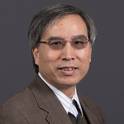
End diaphragms connect multiple girders to form a bridge superstructure system for effective resistance to earthquake loads. Concrete girder bridges that include end diaphragms consistently proved to perform well during previous earthquake events. However, whether concrete bridges without end diaphragms are definitively inadequate in seismic performance is yet to be answered. The 2010 Chile Earthquake indicated that properly designed bridge girders and their lateral movement stoppers (shear keys) may perform equally well with those with end diaphragms. In this report, a feasibility study on the design of girder bridges without end diaphragms is presented. This study is particularly significant in the context of accelerate bridge construction since concrete diaphragms are often cast in place and eliminating them can save field erection time and cost. The key to make the no-diaphragm concept work is to understand how multiple girders can work together during a transverse earthquake excitation without breaking the girders and bridge deck. Specifically, a three-dimensional finite element model of a representative concrete girder bridge with and without end diaphragms is established and analyzed to understand the effects of various design parameters (e.g. diaphragm height, diaphragm thickness, the coefficient of friction between girders and their supporting elements, the number and size of shear keys) on transverse girder movement capacity. Numerical results indicate that properly designed end diaphragms can increase the transverse capacity of a bridge by making individual girders work together but can be substituted by shear keys placed between the strengthened girders. In doing so, both transverse capacity and stiffness of the bridge superstructure can be significantly increased. Shear keys are more reliable than the friction mechanism. In particular, movable shear keys are more effective in distributing loads among multiple girders.
- Bridge,
- Design,
- Accelerated Bridge Construction,
- Test
Available at: http://works.bepress.com/genda-chen/293/
